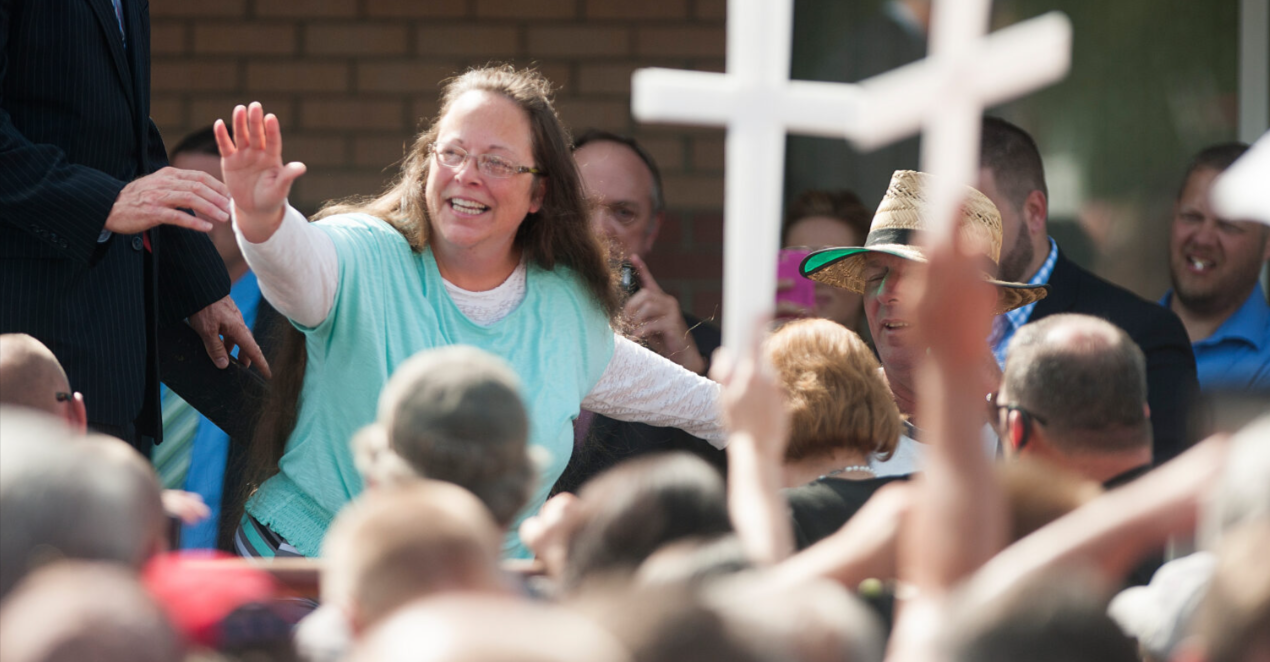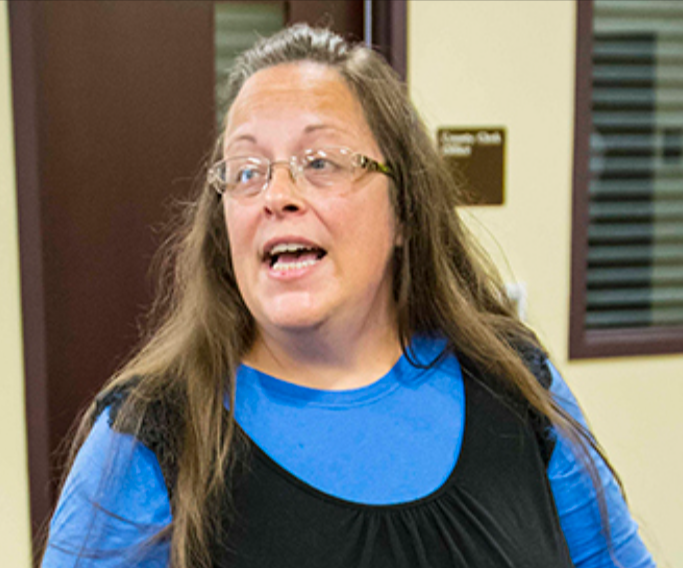Kim Davis is a former county clerk from Rowan County, Kentucky, who gained national and international attention in 2015. She became widely known for refusing to issue marriage licenses to same-sex couples, citing her Christian beliefs. Her actions sparked a nationwide debate about religious freedom, legal responsibilities, and the rights of same-sex couples.
Who Is Kim Davis and What Did She Refuse to Do?
In 2015, while serving as the Rowan County Clerk, Kim Davis faced a defining moment in her career. Following the U.S. Supreme Court ruling in Obergefell v. Hodges, which granted same-sex couples the constitutional right to marry, Davis refused to issue marriage licenses to these couples. She later extended her refusal to all couples, stating that her name on the documents would indicate her endorsement of same-sex marriage, which conflicted with her Apostolic Christian faith.
Her refusal prompted multiple couples to file lawsuits in federal court. Davis was eventually held in contempt of court for failing to comply with the judge’s order to resume issuing licenses. She spent five days in jail, during which the national media spotlight intensified, making her one of the most recognized public figures in debates over religious freedom versus legal obligations.
Career Highlights
Kim Davis’s career in public office spans decades:
1991: Began working in the Rowan County Clerk’s office.
2014: Elected as Rowan County Clerk.
2015: Became the center of national debate after refusing to issue marriage licenses to same-sex couples. Briefly jailed for contempt of court after defying a federal order.
2019: Authored the memoir Under God’s Authority: The Kim Davis Story, reflecting on her faith and experiences during the 2015 controversy.

What Happened to Kim Davis?
After the 2015 controversy, the legal battles continued for years. Federal courts in 2023 and 2024 ruled that Davis violated the constitutional rights of same-sex couples denied marriage licenses. In 2025, some aspects of the case, particularly concerning damages and liability, are still ongoing.
Her case remains frequently cited in debates regarding:
- Religious freedom versus legal responsibilities
- Enforcement and recognition of same-sex marriage
- The limits of personal belief in public office
Legacy and Public Discussion
Kim Davis’s actions brought attention to complex questions about faith and government service. Supporters praised her for standing by her beliefs, while critics argued her actions violated citizens’ rights. The events surrounding her career continue to serve as an example of the tension between personal convictions and legal duties in public office.
Even in 2025, Kim Davis’s case is referenced in discussions of public service ethics, religious freedom, and civil rights, highlighting the ongoing relevance of her actions.















